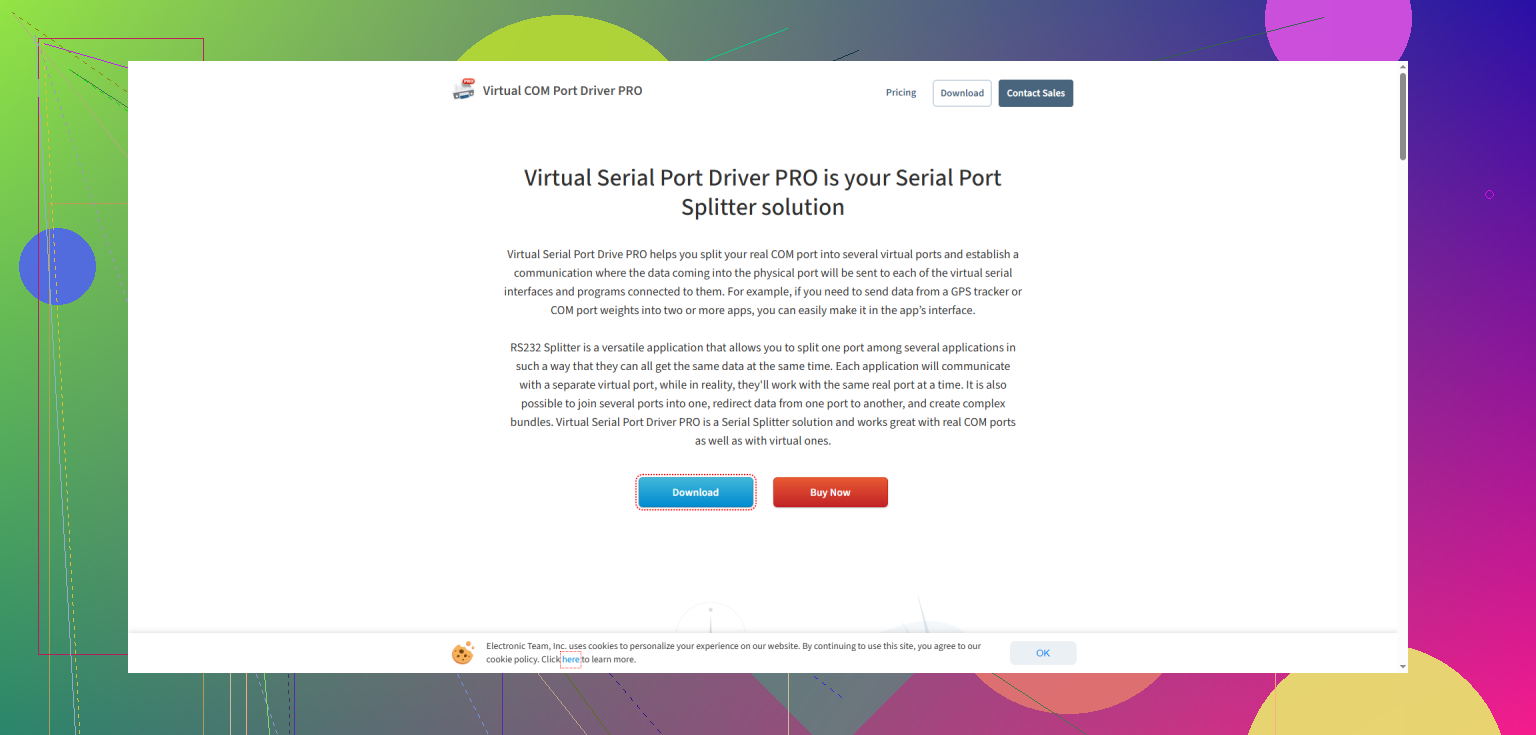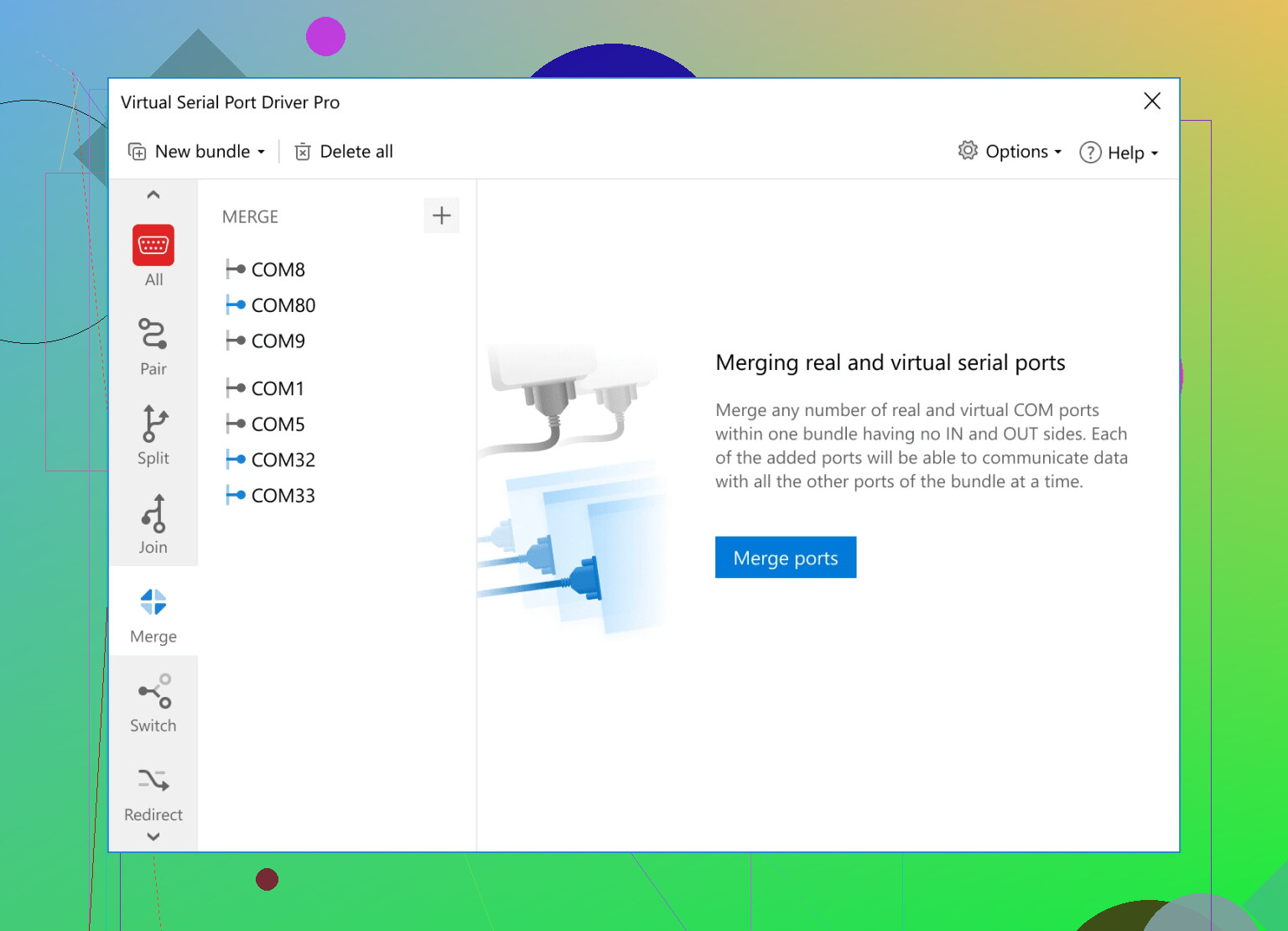My current serial port splitter keeps crashing and is no longer supported. I need recommendations for reliable alternative serial port splitters for Windows that work well with multiple COM devices. Has anyone switched to a different software recently and had good results?
Serial Port Splitter Struggles: Real Talk & Alternatives
So, I’ve been banging my head against the wall trying to get Fabulatech Serial Port Splitter to do exactly what I need. Spoiler: it’s not as painless as you’d hope. If you’re stuck in the same boat and don’t vibe with how Fabulatech handles things, there are honestly better ways out there.
The Relief Discovery (With Link for the Curious)
I stumbled upon a super-detailed write-up over here: Splitting Serial Ports: Unlocking the Power of Legacy Communication in Modern Systems. For anyone who’s ever tried to make ancient hardware talk to new software, this post hits close to home. The author dives into port splitting and throws out a couple of tool recommendations that go beyond the usual “just try this!” type of advice.
What Actually Works for My Ham Radio Nonsense
Cutting to the chase, after lots of tripping over messy configs and random driver errors, I landed on this tool for serial port splitting. For you ham radio folks—especially those wrangling multiple rigs or logging setups—it just… works. No random disconnects. No arcane registry edits. Plug, split, done.
Why Bother? Rant Incoming
Honestly, why is serial port splitting still this much of a hassle in 2024? Feels like we’re jury-rigging digital duct tape just to get old-school gear working with modern apps. Half the programs out there have ancient UIs, weird licensing, or straight-up don’t play nice with Windows updates. Not blaming anyone—just wish the out-of-the-box experience was less “pray and hope” and more “click and chill.”
TL;DR
- Fabulatech too clunky or limited? Same.
- Check out this Medium piece: Splitting Serial Ports: Unlocking the Power of Legacy Communication in Modern Systems
- Personally, I lean on this tool for hassle-free splits. YMMV, but it saved me from a meltdown.
If you’ve found something even smoother or have beef with another splitter program, would love to hear about it. No more serial drama, please.
You know, when it comes to serial port splitters on Windows, the struggle is REAL—@mikeappsreviewer pretty much nailed the pain points. I totally get the frustration with Fabulatech (those error codes haunt my dreams), and hey, glad their suggested tool worked out for ham radio. But if you’re stuck dealing with flaky connections, driver drama, or just want something modern that doesn’t look like it was designed in Win95 Paint—let’s talk actual alternatives.
First off: If you’re managing, say, dozens of COM devices or you need slick config options (think port pairing, advanced emulation, or custom baud rates), you want something a little swankier than your average virtual splitter. My no-brainer pick? Virtual Serial Port Driver from Eltima. Seriously, it’s rock solid. I’ve run this thing under Windows 10 and 11 pro, across hypervisor environments, and with finicky legacy apps that throw a fit over fake ports. No awkward restarts, no ghost COM ports hanging around. It even lets you create unlimited pairs if you’ve got the hardware. UI isn’t gorgeous but at least stuff’s labeled—no decoding cryptic buttons.
Vizualization, monitor, and debug tools are a cherry on top, which is huge if you’re juggling multiple apps that all want their own slice of the serial pie. If something crashes? It recovers. Windows update? Doesn’t break. Licensing? Not absurd (yes, I paid, yes, it stung a bit, but my forehead thanks me for not slamming it into my desk anymore).
Just to toss it in—if you want a deep dive into why serial port hell is still a thing (and where splitters fit in), check out this guide to bridging old hardware with new software.
Seriously though, there are “free” options floating around but 80% of those are sketchy, outdated, or slap you with popups every three seconds. If you’re only running two apps and don’t mind reboot roulette, maybe gamble, but from experience… it almost always bites you in the end.
In summary:
- Ditch Fabulatech if it’s making you crazy.
- Avoid the one-click wonders unless you like surprises.
- Virtual Serial Port Driver: stable, corporately supported, less migraines.
- If anyone has something MORE bulletproof, I’m all ears (my patience isn’t).
If your current solution is giving you serial trauma, swap ASAP. Don’t wait til your devices ghost you mid-project—been there, over it.
Everyone here’s feeling the serial port pain, that’s for sure—and @mikeappsreviewer and @viaggiatoresolare basically laid out the battlefield. Honestly, I get the loyalty to Eltima’s Virtual Serial Port Driver; it IS robust (my old data logger actually stopped throwing tantrums with it), but let’s not pretend it’s the only answer, or that it’s 100% trouble-free. I’ll second the “not cheap” sting too—if you’re just playing around with 2-3 COM devices, it feels like using a sledgehammer to drive a thumbtack.
Fabulatech and some other options? Yeah, nostalgia for 1998 isn’t a good enough reason to suffer through those UIs or random bluescreen crashes. As far as the Serial Port Splitter app goes, if you want direct-to-the-point, I’d call it simple, easy to get running, covers the basics for splitting physical and virtual COM ports, and stays pretty lightweight on system resources. For most legacy comms or just splitting one GPS to multiple apps, it does the job (just don’t expect advanced debugging).
If you want to upgrade from Fabulatech but you’re hesitant to throw cash at Eltima yet, try checking out modern serial port management tools. No-nonsense setup, decent support, and less hair-pulling. Just, pro-tip: keep backup configs because Windows loves to occasionally “forget” your ports after a major update (can someone explain why this is still a thing in 2024?).
If you absolutely need to run a small army of devices and hot-swap without drama, Virtual Serial Port Driver is worth the splurge. Otherwise, for modest use? I’ve survived with the Serial Port Splitter app and didn’t need a manual the size of Lord of the Rings. TL;DR: know your needs, skim some demos, and don’t settle for the first thing labeled “serial port splitter” on Google—most are dated or straight-up sketchy. Anyone else tried actual open-source projects for this, or is everyone as burned as I am on half-baked solutions?

